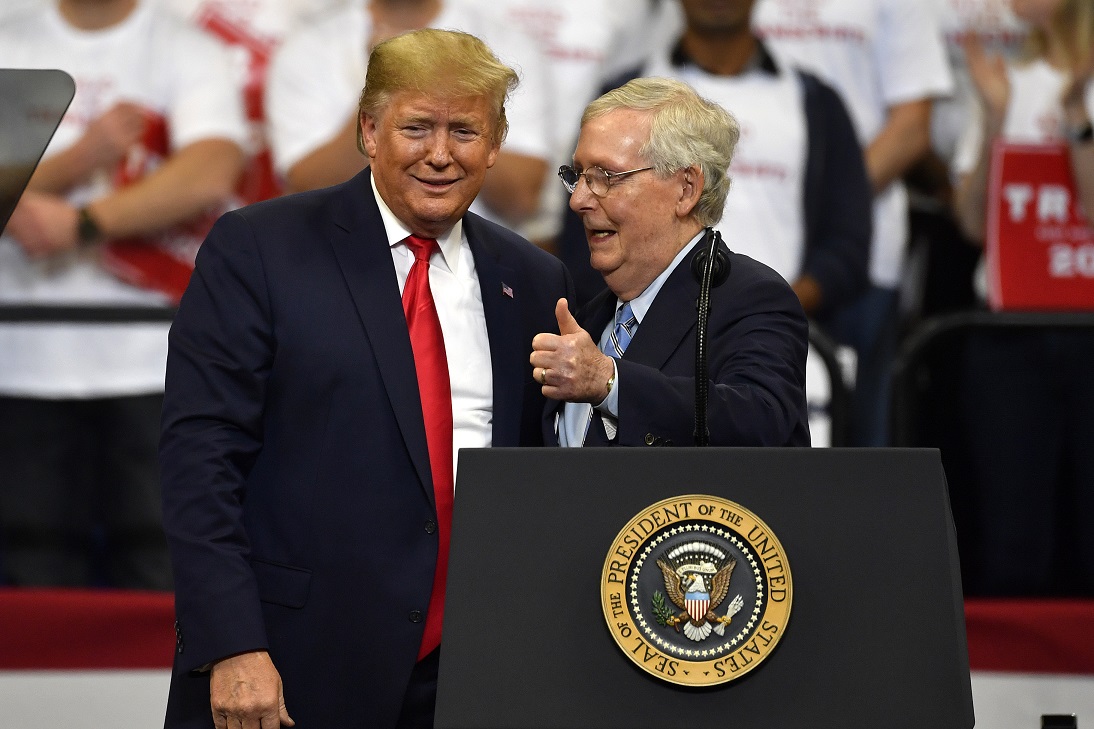National
Impeachment trial to begins with rules fight, long days

WASHINGTON (AP) — President Donald Trump’s impeachment trial is set to unfold at the Capitol, a contentious proceeding to render judgment on his Ukraine actions as Americans form their own verdict at the start of an election year.
As the Senate reconvenes with Chief Justice John Roberts presiding over the rare impeachment court, senators sworn to “impartial justice,” the legacy of Trump’s presidency and the system of checks and balances are at stake before a politically divided nation.
A first test will come midday when the session gavels open to vote on Senate Majority Leader Mitch McConnell’s proposed rules for debate.
On the eve of the trial, the Republican leader offered a compressed calendar for opening statements, just two days for each side, as Trump’s lawyers argued for swift rejection of the “flimsy” charges against the president and acquittal.
McConnell is angling for a quick trial and acquittal, and with Republicans holding the Senate majority, the trial proposal is likely to be approved by senators in the president’s party.
Senate Democratic leader Chuck Schumer warned of a “cover-up” with McConnell’s plan that could lead to back-to-back 12-hour days.
“It’s clear Sen. McConnell is hell-bent on making it much more difficult to get witnesses and documents and intent on rushing the trial through,” Schumer said.
The Republican leader had promised to set rules similar to the last trial, of President Bill Clinton in 1999, but his resolution diverged in key ways, which may leave some senators from both parties uneasy.
During Clinton’s impeachment, all 100 Senators agreed to the rules. It’s quite the opposite for Trump’s impeachment.
After the four days of opening arguments, senators will be allowed up to 16 hours for questions to the prosecution and defense, followed by four hours of debate. Only then will there be votes on whether or not to call other witnesses.
At the end of deliberations, the Senate would then vote on each impeachment article.
A small number of Republican senators want to consider witness testimony and documents that weren’t part of the House impeachment investigation, but the test of their votes will likely come later.
In their own filing Monday, House prosecutors issued fresh demands for a fair trial.
“President Trump asserts that his impeachment is a partisan ‘hoax.’ He is wrong,” the prosecutors wrote.
The House said the president can’t have it both ways — rejecting the facts of the House case but also stonewalling congressional subpoenas for witnesses and testimony.
“Senators must honor their own oaths by holding a fair trial with all relevant evidence,” they wrote.
“President Donald J. Trump used his official powers to pressure a foreign government to interfere in a United States election for his personal political gain,” the House prosecutors wrote, “and then attempted to cover up his scheme by obstructing Congress’s investigation into his misconduct.”
Trump’s team contended Monday that even if Trump were to have abused his power in withholding the Ukraine military assistance, it would not be impeachable because it did not violate a specific criminal statute.
No president has ever been removed from office. With its 53-47 Republican majority, the Senate is not expected to mount the two-thirds voted needed for conviction. Even if it did, the White House team argues it would be an ”’unconstitutional conviction″ because the articles of impeachment were too broad.
Administration officials have argued that similar imprecision applied to the perjury case in Clinton’s impeachment trial.

